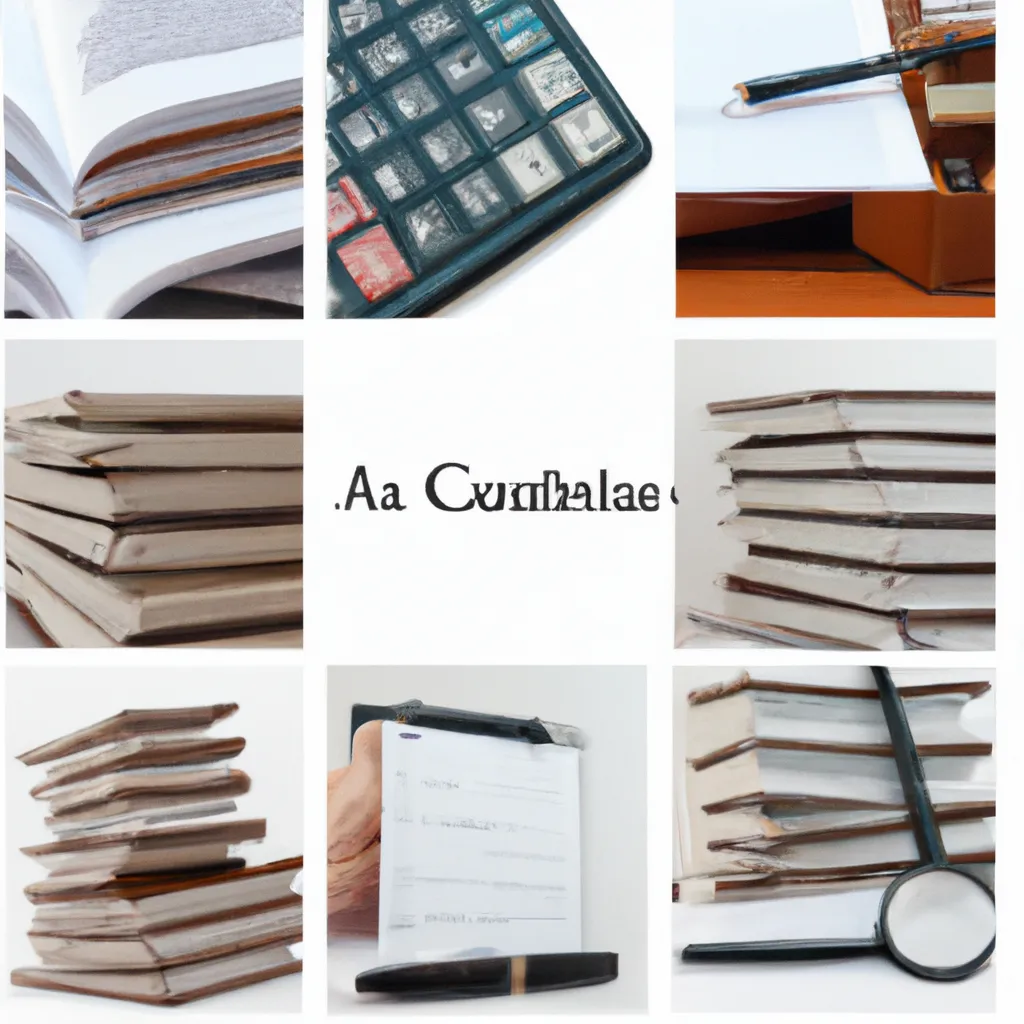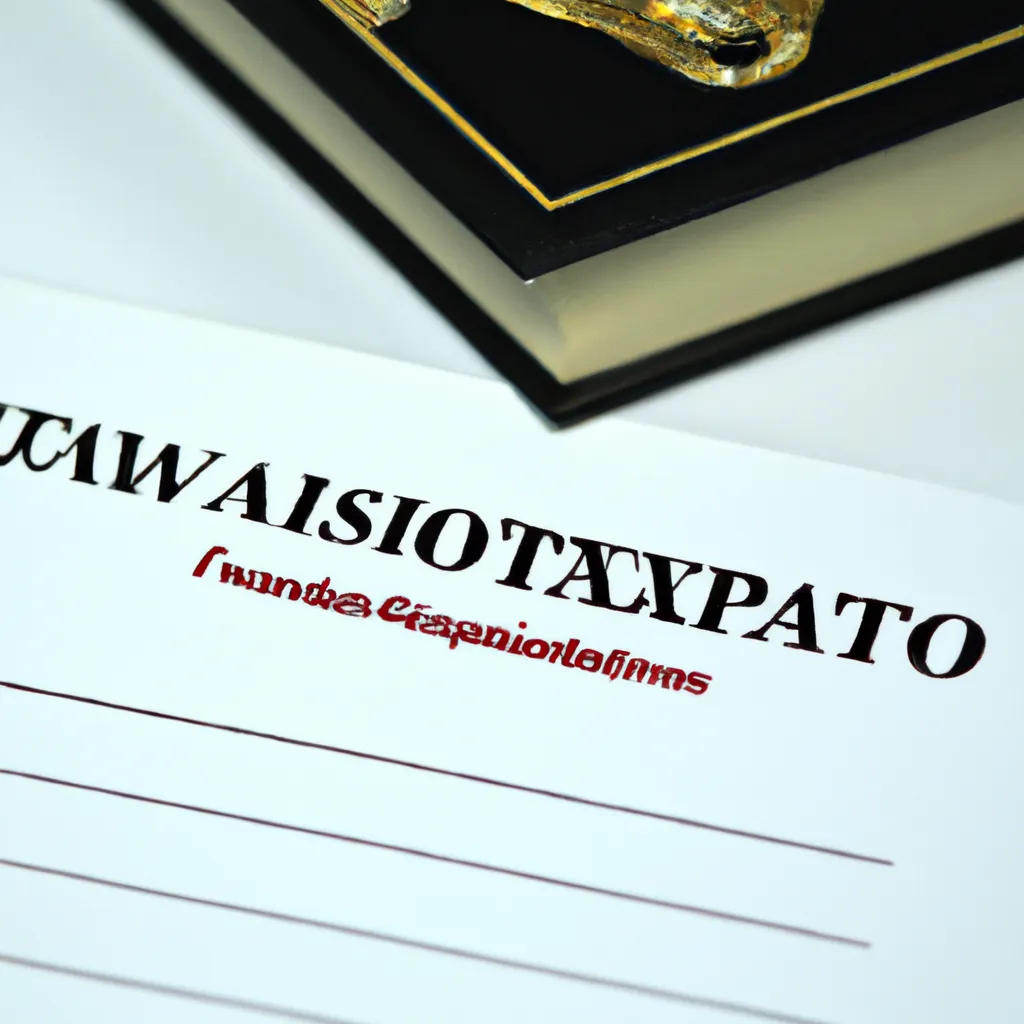inheritance tax in Ottawa: Expert Tax Tips | Are you a resident of Ottawa, Ontario and worried about the impact of inheritance tax on your beneficiaries. Here are some expert tips to guide you through this complex tax system. Inheritance tax, also known as estate tax, is a tax imposed on the transfer of assets from a deceased person to their heirs. It is calculated based on the value of the assets being transferred and can have a significant impact on your loved ones' inheritance.
However, with proper planning and expert guidance, you can minimize the tax burden on your estate. For example, using strategies such as gifting or setting up trusts can help reduce the value of your estate and therefore decrease the amount of inheritance tax to be paid. Consult with a knowledgeable tax professional to find the best approach for your specific situation. But these are not the only options available.
By working closely with a trusted tax advisor, you can explore other creative ways to reduce your inheritance tax liability. Don't hesitate to seek out the expertise of an experienced tax professional to ensure the best possible outcome for your estate and loved ones. Our team of tax experts has extensive experience in assisting clients in Ottawa with their inheritance tax planning. We understand the complexities and nuances of the tax system and can provide personalized solutions tailored to your unique circumstances.
Contact us today to schedule a consultation and secure the future of your estate.
Understanding inheritance tax in ottawa
Inheritance tax is a tax levied on inherited assets, such as money or property, that are passed down to the next generation after someone passes away. This tax is based on the total value of the inherited assets and is typically paid by the beneficiary of the inheritance.
What is inheritance tax and who does it apply to?
In canada, inheritance tax is also known as estate tax or succession duty. It is important to note that inheritance tax is not a federal tax, meaning that it is not applicable to the entire country. Instead, specific provinces and territories have their own rules and regulations for inheritance tax.
In ottawa, inheritance tax is regulated by the ottawa estate administration tax act. This tax is applicable to the assets of an individual residing in ottawa at the time of their death. It also applies to assets located in ottawa, even if the deceased person was not a resident. Additionally, the tax may also apply to non-residents if they owned real estate or personal property in ottawa at the time of their death.
How does inheritance tax work in ottawa?
The inheritance tax rate in ottawa is calculated based on the total value of the estate. This includes all assets, such as real estate, cash, investments, and valuables. The tax rate starts at 0.5% for estates valued at less than $50,000 and gradually increases to 1.5% for estates valued at $350,000 or more.
If the estate is worth more than $50,000, the executor of the estate is required to file a tax return and pay the tax within 90 days of the deceased person's death. Failure to file or pay the tax on time can result in penalties and interest.
It is important to note that some assets may be exempt from inheritance tax in ottawa. This includes assets that are transferred to a spouse, common-law partner, or charitable organization. Certain real estate properties, such as farms or family homes, may also be eligible for a tax reduction.
Common misconceptions about inheritance tax
Many people mistakenly believe that they will have to pay inheritance tax on any assets they receive from a deceased family member. However, this is not always the case. In ottawa, inheritance tax is only applicable to estates valued at $50,000 or more.
Another common misconception is that only wealthy individuals need to worry about inheritance tax. In reality, even middle-class families may be subject to this tax if their assets exceed the $50,000 threshold.
Furthermore, some people may believe that inheritance tax can be avoided by gifting assets to family members before passing away. However, this is also not entirely true. The canada revenue agency has strict rules and regulations in place to prevent individuals from purposely avoiding inheritance tax by gifting their assets before death.
Lastly, some may believe that inheritance tax is the same as probate fees. While both of these involve the transfer of assets after death, they are two separate taxes with different rates and regulations.
If you have concerns about the inheritance tax in ottawa, it is always best to consult with a chartered accountant Or tax specialist Who can provide guidance and ensure that the tax is properly filed and paid.

Why you need chartered accountants for inheritance tax
Inheritance tax can be a complex and daunting subject for many people, especially during an already difficult time. Without proper knowledge and expertise, it can be challenging to navigate through the intricacies of inheritance tax and ensure that you are paying the right amount to the government. This is where a chartered accountant comes in. Hiring a qualified chartered accountant can provide numerous benefits when it comes to dealing with inheritance tax matters. In this article, we will explore why you need chartered accountants for inheritance tax and how to find the right cpa for your needs in ottawa.
The importance of having a qualified accountant for inheritance tax
Chartered accountants specialize in managing financial matters such as taxation, auditing, and financial reporting. When it comes to inheritance tax, having a qualified accountant on your side can provide peace of mind and ensure that everything is handled correctly. Here are some reasons why you should consider hiring a chartered accountant for your inheritance tax needs:
- expertise and knowledge: With extensive education and experience, chartered accountants possess the necessary expertise and knowledge to handle complex tax matters. They stay up-to-date with the latest tax laws and regulations, ensuring that you are receiving accurate and reliable advice.
- maximizing tax savings: Chartered accountants are well-versed in tax planning strategies and can identify opportunities to minimize your tax obligations. They can help you find permanent tax savings solutions that might not be apparent to the average person. This can ultimately save you a significant amount of money in the long run.
- reducing errors and penalties: Tax-related errors can lead to costly penalties and interest charges. With a chartered accountant working on your inheritance tax, you can rest assured that all calculations and filings are accurate and in compliance with tax laws, reducing the risk of costly errors and penalties.
Benefits of working with chartered accountants for inheritance tax
There are various benefits to working with chartered accountants for your inheritance tax needs, including:
- personalized service: Chartered accountants provide tailored services to meet your specific needs, unlike generic tax software or diy tax preparation. They take the time to understand your financial situation and provide personalized solutions that are most beneficial for you.
- representation during audits: In case of tax audits or disputes, having a chartered accountant on your side can provide valuable support and representation. They can handle all communication with the canada revenue agency and ensure that your interests are protected.
- additional financial services: Many chartered accountants offer a wide range of financial services, including bookkeeping, financial planning, and business consulting. This can be beneficial for individuals dealing with complex inheritance matters or those who own businesses.
How to find the right cpa for your inheritance tax needs
When it comes to finding a qualified chartered accountant to handle your inheritance tax, there are a few things you can keep in mind to ensure you are choosing the right professional:
- credentials and experience: It is essential to check the credentials and experience of a chartered accountant before hiring them. Look for someone who is a member of a professional accounting body, such as the chartered professional accountants of canada, and has experience dealing with inheritance tax.
- references and reviews: Ask for references and read reviews from previous clients to get a better idea of their services and customer satisfaction. This can also help you gauge their expertise and knowledge in handling inheritance tax matters.
- communication: It is crucial to choose a chartered accountant who is easy to communicate with and makes an effort to understand your specific needs. You should feel comfortable asking them questions and discussing your concerns regarding inheritance tax.
Hiring a chartered accountant for your inheritance tax needs can provide numerous benefits and make the process smoother and less stressful. By considering the expertise, personalized service, and credentials of a chartered accountant, you can ensure that your inheritance tax matters are handled correctly and efficiently. So if you are dealing with an inheritance or looking for ways to minimize your tax obligations, consider reaching out to a qualified chartered accountant in ottawa.

Tax specialists: your key to reducing inheritance tax
In ottawa, inheritance tax laws can be complicated and overwhelming for many individuals. As a result, canadians often turn to tax specialists, such as chartered accountants, to help them navigate through the complexities and reduce their inheritance tax bill.
How tax specialists can help you minimize your inheritance tax bill
Tax specialists have the knowledge and expertise to review your assets and develop strategies to minimize the amount of inheritance tax that your loved ones will have to pay in the future. These professionals have a deep understanding of inheritance tax laws and can offer personalized advice based on your financial situation. They can assist you in various ways, such as restructuring your assets, making use of tax exemptions and deductions, and setting up trusts. By working closely with your tax specialist, you can ensure that your loved ones receive the maximum inheritance and are not burdened with hefty tax bills.
Common strategies used by tax specialists for inheritance tax planning
One of the most commonly used strategies by tax specialists for minimizing inheritance tax is to transfer assets to a trust. This involves placing your assets, such as property or investments, in a trust that can be passed on to your beneficiaries in the future. By transferring assets into a trust, you can reduce the overall value of your estate and, consequently, the amount of inheritance tax that your loved ones will have to pay. Another common strategy is to make use of tax exemptions and deductions. Tax specialists can help you take advantage of various exemptions, such as the spousal exemption, which allows assets to be passed on to a spouse tax-free. They can also help you make use of deductions, such as charitable donations, which can reduce the value of your estate and lower your inheritance tax bill.
The importance of regular communication with your tax specialist for inheritance tax
As with any tax planning, it is crucial to maintain open and regular communication with your tax specialist. This is especially important when it comes to inheritance tax planning, as changes in your financial situation can impact your tax planning strategies. For example, if you acquire new assets or have a significant increase in your wealth, this may require adjustments to your inheritance tax plan. By keeping your tax specialist updated on any changes, they can ensure that your tax plan remains effective and that your loved ones are not faced with unexpected tax liabilities. Reducing inheritance tax can be a daunting task, but with the help of tax specialists, it can be made easier. By utilizing their expertise, you can develop a comprehensive inheritance tax plan that not only minimizes the tax burden on your loved ones but also ensures that your assets are passed on according to your wishes. So, if you want to secure your legacy and protect your loved ones, consult a tax specialist today.

Maximizing your inheritance using tax advisors
Inheriting assets can be both a blessing and a burden. Along with the emotional toll of a loved one's passing, there is also the added responsibility of managing and preserving the inheritance left behind. One crucial aspect that often gets overlooked during this process is tax planning. In many cases, the burden of inheritance tax can significantly reduce the value of the assets, leaving the beneficiaries with much less than expected. This is where tax advisors come in to play a crucial role in ensuring the tax efficiency of your inheritance.
The role of tax advisors in ensuring your inheritances’ tax efficiency
Tax advisors, commonly known as chartered accountants or tax specialists, are professionals trained to provide expert advice on matters related to taxation. Their expertise lies in navigating complex tax laws and regulations, making them invaluable partners in maximizing your inheritance's value. They can ensure that your inheritance is structured in the most tax-efficient manner, minimizing the tax burden and maximizing the assets' value for you and your family.
When it comes to inheritance, tax advisors can help in various ways, such as:
- providing guidance on tax implications of different types of inheritances, such as cash, property, or investments
- assessing the current and future tax situation of the inheritor and devising a personalized tax plan
- identifying tax-saving opportunities and strategies to minimize the tax burden
- ensuring compliance with tax laws and regulations to avoid penalties and legal issues
- advising on estate planning to help preserve wealth for future generations
How tax advisors can help you navigate complex inheritance tax laws and regulations
Inheritance tax laws can be challenging to navigate, with varying regulations and exemptions depending on the country or state in which the assets are located. For example, in ottawa, canada, the inheritance tax laws differ from other provinces and territories. In addition, there are different tax implications for beneficiaries receiving assets from a canadian resident versus a non-resident. Tax advisors are well-versed in these laws and can guide you through the complex process, ensuring that you are not paying more taxes than necessary.
They can also help you take advantage of tax breaks and exemptions, such as the lifetime capital gains exemption, which can significantly reduce the tax burden on inherited assets. Furthermore, tax advisors keep up-to-date with any changes in tax laws and regulations, ensuring that your tax plan remains relevant and effective.
The benefits of proactive tax planning with a tax advisor for your inheritance
One of the biggest mistakes people make when it comes to inheritance tax is not planning ahead. Procrastinating on tax planning can lead to unexpected and substantial tax bills, diminishing the value of your inheritance. By working with a tax advisor proactively, you can devise a tax strategy that minimizes the tax burden and maximizes the assets' value.
Tax advisors can help you identify tax-saving opportunities that you may not have been aware of, such as income splitting, using trusts, or taking advantage of tax-efficient investment vehicles. They can also advise on the timing of selling assets to reduce tax implications and help you make informed decisions about how to use your inheritance most effectively.
In addition, proactive tax planning can help avoid any surprise tax bills and allow for better financial planning for future generations. By working together with a tax advisor, you can ensure that your assets are passed down to your heirs with minimal tax implications, preserving your family's wealth for years to come.
Inheritance tax can be a complicated and often overwhelming aspect of receiving an inheritance. However, with the help of a knowledgeable and experienced tax advisor, you can navigate the process with ease and ensure that your inheritance is as tax-efficient as possible. By taking a proactive approach to tax planning, you can maximize the value of your inheritance and preserve your family's wealth for generations to come. So, if you have recently received an inheritance or are in the process of estate planning, don't forget the crucial role that tax advisors play in optimizing your inheritance's tax efficiency.
Expert tax tips for inheritance tax in ottawa
Inheritance tax is a tax that is levied on the transfer of assets from a deceased person to their beneficiaries. In ottawa, this tax is also known as the estate tax and is paid by the beneficiaries of the estate. The amount of inheritance tax owed can vary depending on the size of the estate and the tax laws in place at the time of the transfer. As chartered accountants and tax specialists in ottawa, we understand that inheritance tax can be a daunting and confusing topic for many people. That's why we've compiled some expert tips to help you minimize your inheritance tax liability and avoid any unexpected surprises.
Tips for minimizing your inheritance tax liability
One of the most effective ways to minimize your inheritance tax liability is to make use of tax exemptions and reliefs. These are deductions that can reduce the value of your estate and therefore, decrease the amount of inheritance tax that needs to be paid. It's important to note that these exemptions and reliefs may vary depending on the tax laws in ottawa. Therefore, it's crucial to seek the advice of a chartered accountant or tax specialist who is familiar with the tax laws in your area.
Another strategy for reducing the inheritance tax burden is to gift your assets during your lifetime. By doing so, you can potentially decrease the value of your estate and therefore, lower the amount of inheritance tax owed by your beneficiaries. However, it's essential to consult with a professional to understand the potential tax implications of gifting assets and the applicable tax laws in ottawa.
In addition, setting up a trust can also be a useful tool for minimizing inheritance tax. Trusts can provide a way to pass on assets to your beneficiaries without incurring significant tax liabilities. However, the type of trust and how it is set up can have a significant impact on the amount of inheritance tax that will need to be paid. Therefore, it's crucial to seek professional advice to ensure that the trust is set up in a tax-efficient manner.
Important considerations for avoiding inheritance tax surprises
One common mistake that many people make when it comes to inheritance tax is assuming that they are not subject to it. It's essential to understand that even if you are not a resident of ottawa, you may still be liable for inheritance tax if you have assets in the city. Therefore, it's crucial to seek professional advice if you are unsure about your inheritance tax obligations.
Additionally, it's essential to keep detailed and accurate records of all assets and transactions that may be subject to inheritance tax. This includes any gifts made during your lifetime, as well as any assets held in a trust. These records will be crucial in determining the value of your estate and calculating the inheritance tax owed. Not maintaining proper records can lead to tax surprises and even penalties from the ottawa tax authorities.
The benefits of seeking professional advice for your inheritance tax situation
Navigating the complex world of inheritance tax can be challenging, and mistakes can be costly. That's why seeking the help of chartered accountants and tax specialists in ottawa can provide significant benefits. These professionals have a thorough understanding of the tax laws and exemptions that can help minimize your inheritance tax liability. They can also work with you to create a tax-efficient estate plan that meets your specific needs and circumstances. By seeking professional advice, you can avoid any unexpected inheritance tax surprises and ensure that your beneficiaries receive the maximum benefit from your estate.
When it comes to inheritance tax in ottawa, it's crucial to be aware of your obligations and to seek professional advice. By utilizing tax exemptions and reliefs, gifting assets, setting up trusts, and keeping proper records, you can minimize your inheritance tax liability. And with the help of chartered accountants and tax specialists, you can navigate the complex tax laws and ensure that your estate plan is efficient and in line with your wishes.

